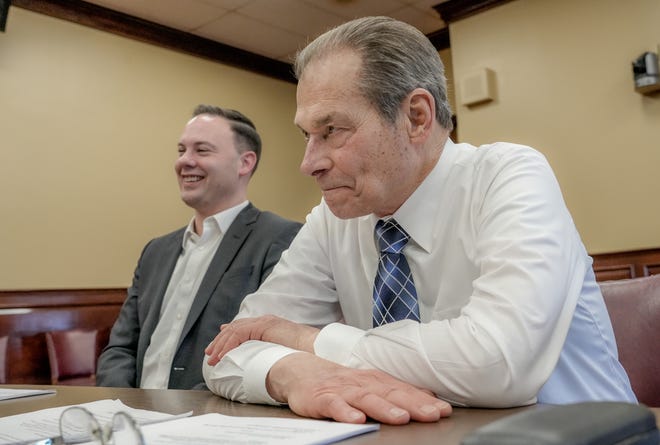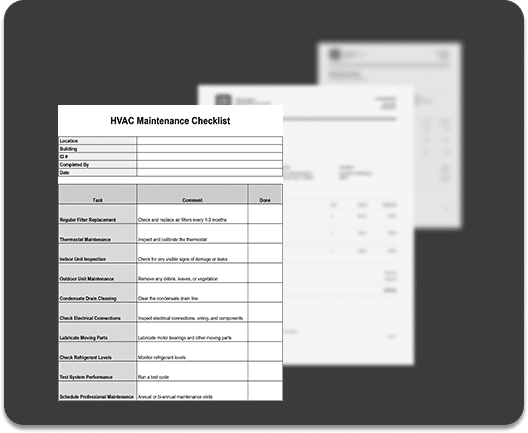PROVIDENCE – A new year is about to start with the Democratic leaders of the Rhode Island House and Senate already at odds over the need for a significant rewrite of the state’s education-funding formula.
And not for nothing: Senate President Dominick Ruggerio echoed Providence Mayor Jorge Elorza in saying he would not want his children – or in his case, grandchildren – to attend Providence public schools if they lived in the Capital City. His answer when asked: “No.”
“Providence has a long way to go,” he said of the city school system that was taken over by the state in 2019 after a scathing report from Johns Hopkins University researchers.

In a wide-ranging interview on next year’s top policy topics Tuesday, Ruggerio and his new top lieutenant – Ryan Pearson of Cumberland – pushed back on the argument made by House Speaker K. Joseph Shekarchi last week that pandemic disruptions such as online learning made this the wrong time to change the formula that determines state school aid to cities and towns.
On the contrary, the Senate leaders said, they are committed to fixing known problems in the “outdated” formula used to distribute hundreds of millions of dollars in state aid to local school districts.
“Actually, that’s exactly the reason to do it,” Pearson said, point out that the state has given local districts an extra $40 million to $50 million in aid during the COVID years.
“You can actually make some of the changes that you want to make in the formula with that money rather than continuing it as a blanket hold-harmless,” he said.
“You can actually address multilingual learners. You can actually address students that have disabilities. You can also actually address some of the issues you have in some of these communities that have been way underfunded that don’t have the ability to reach that funding level on their own.
Asked whether that meant more or less money for the struggling Providence schools, Pearson said Pawtucket and Woonsocket may have greater needs.
“So we talk a lot about Providence, but let’s talk about Pawtucket. Pawtucket is worse funded than Providence … and if you want to talk even worse than that, Woonsocket is a country mile behind Pawtucket,” Pearson said. “It is not just a urban issue, it is an urban and suburban issue. The president and I have heard from probably almost every one of our colleagues around how education’s a priority for them, which has led us to make education a top priority.”
Housing

Neither House nor Senate leaders are satisfied with the effort from Gov. Dan McKee’s administration to deploy the more than $250 million budgeted for housing earlier this year or to find emergency shelter for more than 500 Rhode Islanders living on the street this winter.
“There’s almost $300 million sitting in that [housing] fund. I want to see it go out,” Ruggerio said. “I was not pleased during COVID when there was so much money available for rentals to pay landlords for utilities. And our housing groups were not getting that money out. I don’t know what they were waiting for but that money did not go out in a timely fashion.”
But the House and Senate prescription for accelerating housing production may differ.
Ruggerio puts the spotlight on the state’s new housing secretary, Josh Saal, whose role was created as part of Shekarchi’s last package of housing bills.
“I don’t think he’s done much of a job so far,” Ruggerio said. “I certainly would like to meet with him and find out what he’s been doing. I want to find out how much money is left in that [housing] fund. I want to find out a lot of things.”
Despite those concerns, Ruggerio isn’t making a move to eliminate the housing secretary role.
But he said he does want to abolish the Executive Office of Health and Human Services.
Although he didn’t defend Saal, Shekarchi called out local “not in my backyard” opposition to housing and the onerous rules and restrictions around development that make it easier to grind development to a halt. He’s promised a new package of pro-housebuilding bills in the next session.
Last year, the House passed a bill that would have made it easier for homeowners to add accessory apartments on their properties, but the Senate scaled it back.
“I know there are some available buildings in the state of Rhode Island that the state owns,” Ruggerio said. “I mean, there are buildings that can be suited for residential and I think the state should work in that area. If they can’t find communities that would welcome affordable housing. I mean there has to be a way to do it.”
Nursing homes
Rhode Island’s beleaguered nursing homes are set to face penalties if they fall below minimum staffing thresholds lawmakers approved two years ago and a deal to help them blew up in the final minutes of this year’s legislative session.

“If we can get the groups together to sit down and discuss the issues and maybe come to some kind of consensus we’ll look to work at that,” Ruggerio said, referring to nursing home owners and unions.
“We can ask the [McKee] administration maybe if they want to hold off another two or three months” on issuing fines,the Senate president said. “I don’t know what we can do. Can we come to some kind of an arrangement? I don’t know. You don’t know unless you sit down and try.”
Taxes
“I do not want to raise any broad-based taxes this year,” said Ruggerio, when asked about the perennial push by union-backed progressives to add a new tax-the-rich tier to the state’s income tax. “I don’t see the need of that right now.”
“We have an excessive amount of federal money here in the state that we have to spend. I’m not big on raising taxes under any circumstances … [and] I want to look at the situation in Massachusetts,” he said.
Massachusetts’ highest-earning taxpayers will be charged an additional 4% on annual income over $1 million – on top of the state’s 5% income tax – starting next year when the voter-approved “fair share” amendment to the state Constitution goes into effect.
“I want to see how that affects us … If the millionaires from Massachusetts want to come into [this] state, I want to do it with open arms,” Ruggerio said.
“Revenue is strong, and it is not just federal money … that’s one piece of why you’re continuing to see surpluses,” said Pearson, adding: “Rhode Island, due to Massachusetts’ actions, all of a sudden became competitive when we weren’t before.”
Couple that with the savings from vacancies across state government, Pearson said: “It’s an opportunity for us to take a moment to reflect and figure out how we are going forward.”
Sports betting
Ruggerio led the charge to bring legal sports betting to Rhode Island and as the industry has grown rapidly around the country he wants to make sure the state’s offerings are competitive.
On Tuesday he reiterated his call to allow Rhode Island’s bookmakers to take bets on Rhode Island college sports teams when they compete in a tournament like the NCAA basketball championship.
In addition to barring betting on Rhode Island teams, the state’s current sports betting system gives exclusive rights to International Game Technology to provide an online betting app.
Ruggerio said the online betting contract expires in two years and the Lottery is looking at other, more user friendly apps.
Abortion coverage
After the U.S. Supreme Court overturned Roe v. Wade this year, the General Assembly did not vote on bills to allow public health insurance to cover abortions and then the issue turned into a campaign season flashpoint.
Where do Senate leaders stand this year?
Pearson said he personally supports it.
Ruggerio: “Ten years ago, I probably would have voted against it. Right now, I am open-minded … I just think that people’s minds have changed.”
Shoreline access
The House last summer approved expanding the area along the shoreline where the public can walk freely without fear of trespassing arrest. But the Senate didn’t take it up.
Ruggerio said he is open to a beach access bill, but his lawyers told him the House plan could be challenged in court.
“I would love to see our attorneys work with the House attorneys and see how they can modify that bill and make it better and maybe allay any kind of constitutional concerns,” he said.
Police Bill of Rights
Senators will again work on scaling back the Law Enforcement Officers Bill of Rights with a different lead House sponsor after Rep. Anastasia Williams was defeated in a primary, Ruggerio said.
Changes being contemplated include extending the amount of time police departments can suspend officers accused of misconduct, letting them suspend without pay while felony cases are heard and changing the composition of the panel that decides punishments.














